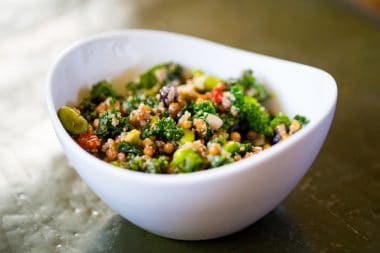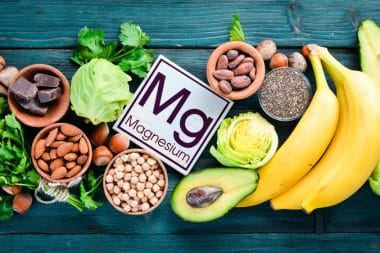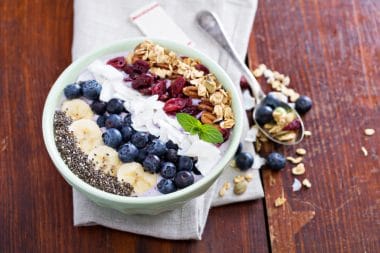If you’re trying to live a healthy lifestyle, getting enough vitamins and minerals is essential. Without these crucial building blocks, you can’t expect to reap the full rewards of your exercise routine or maintain proper sleeping habits. Health experts have known for decades just how important these nutrients are, with benefits ranging from protection from damaging free radicals to shinier, stronger hair. Vitamins strengthen the immune system and guard against disease. On top of that, they can help prevent chronic conditions and certain types of cancer. With all of these advantages, why wouldn’t you focus on your vitamin and mineral intake?
Because so many people want to be certain that they are giving their bodies the right nutrients to be healthy, an entire industry has grown around the concept of the dietary supplement. Often found on store shelves in the form of pills, capsules and gummies, vitamins are meant to provide the nourishment that may be missing from our regular diets. Many processed foods today are made with higher objectives in mind than proper nutrition, such as convenience and taste. Thus, consumers turn to these supplementary products to make up for what’s missing.
However, many people aren’t comfortable with swallowing a little tablet every day. So, how can you make sure to get the daily nutritional requirements to stay healthy? The good news is that pills are not the only answer. Here are six ways you can get the nutrients you need without turning to dietary capsules.
Watch What You Eat
Perhaps the most effective way to add more nutrients is the old-fashioned technique of eating right. A balanced diet that focuses on foods rich in vitamins and minerals means you won’t have to rely on another product to fill the gaps. For example, lean beef and mushrooms are good sources of riboflavin, which is critical for developing red blood cells and converting food into energy. Fortified grains and fresh dairy products can provide all the vitamin A you require. This helps keep bones healthy and can prevent your vision from deteriorating over time.
If you’re concerned about bolstering your immune system, be sure to keep fish such as tuna and salmon on the dinner plate. These proteins provide a high level of vitamin B6 and vitamin D, which work together to improve your body’s response to disease. Snacking on nuts and seeds instead of chips or pretzels not only quiets your hunger but also gives you needed nutrients such as copper and phosphorus.
Take Five
One of the best rules of thumb to follow as you work to live a healthier life is to eat five servings of fruits and vegetables every day. This is a good idea not only because it means you won’t be filling up with processed foods that do more harm than good, but also because these are among the most nutrient-rich foods available. For instance, spinach provides a significant dose of riboflavin, vitamin E, magnesium and manganese all by itself. Eating broccoli gives your body an infusion of calcium as well as vitamins C, K and E. Citrus fruits such as oranges and grapefruit are other excellent sources of vitamin C, as are strawberries, kiwis and bell peppers.
Do Less Cooking
This might sound counterintuitive at first – especially because so many dietitians recommend making meals at home as opposed to eating out or relying on frozen foods. While this is good advice, pay attention to how you are preparing those fresh ingredients. In many cases, cooking can remove vitamins and minerals from vegetables. This is why you should eat them raw or lightly steamed whenever you can. Making salads, coleslaw or crudites ensures that the veggies you consume retain their nutritional value.
Buy Local Whenever Possible
Organic produce tends to have higher concentrations of certain antioxidants. When shopping for ingredients, look for farm stands and markets where locally sourced fruit and vegetables are available. These are sure to help super-charge your diet – not to mention taste great.
Find Alternatives to Pills
If you don’t have time to cook, you still may need to add supplements in order to get the proper amount of nutrients. Fortunately, there are alternatives to pills and capsules that are easier for many of us to take. Many multivitamins are available in liquid form, so they can easily be dropped on the tongue or mixed into your morning smoothie. Additionally, gummies allow you to chew a supplement each day instead of swallowing it – but be sure to watch the sugar content.
It’s hard to stay healthy without the proper dosage of vitamins and minerals every day, but you don’t have to rely on a pill to get it. Follow these words of advice and get creative – you might find a new way to get those nutrients and keep your body strong.
Author bio: Kara Kash, RD, LDN, is a registered dietitian at Factor – a premium weekly meal delivery service that fuses world-class culinary dishes with the latest in nutrition science to produce fully prepared meals that are as delicious as they are nutritious.








Reply